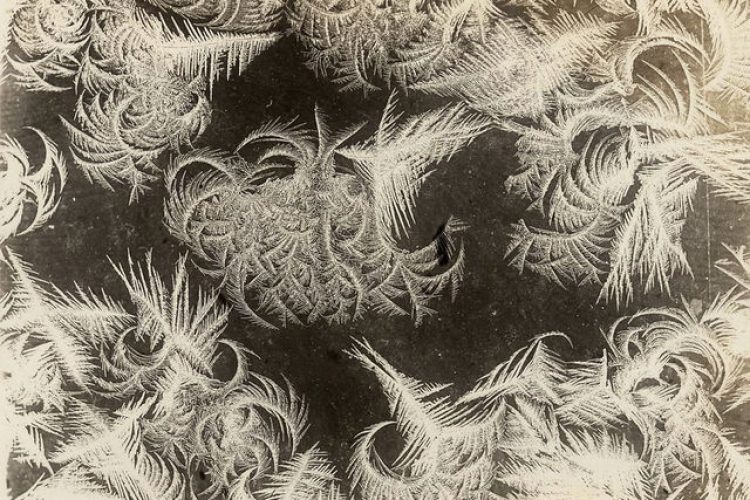F., London, UK
Hi,
There’s a lot of change happening for my family this month and I’m feeling calm yet overwhelmed (is that possible?). Not sure if that’s because I’m partly in denial about imminent house move/reno chaos or because I know we’ll get through it. Please can I have a poem to help me through this exciting yet turbulent time? Thanks.
F.
MNP:
Change as your letter suggests can be both exciting and overwhelming, not to mention destabilizing, especially when that change relates to Home—the place we expect to feel settled in. My mind turns to the wider context of Home as in the world, the earth, the ground on which we settle and how, much like you describe about the current changes happening in your family, we too can be, and often are, overwhelmed by the current disruptive changes in our first, our primal home, the earth and its climate. At a time like you are presently experiencing, being grounded is most needed, and I’m reminded of those figures—tchotchkes really—like wobble or roly poly toys that are constructed with a heavy base and which you can push in any direction, yet they remain grounded and always return to centre.
I’ve chosen three poems to help in this process: the first is from the magnificent work, Whereas, by the poet Layli Long Soldier. Long Soldier’s book-length poem addresses the disruption created in her Lakota homelands through the expropriation and settlement of those very lands by European settlers. The book addresses the so called “apology” made by the US Congress in 2009 to the Indigenous peoples of the USA. In the poem I’ve selected, from a longer section, “Vaporative,” the poet begins with the simple act of lying in bed, a place that is another sort of home and nest, revealing how different positions conjure up different memories for her. The poem then shifts to a prayer of gratitude to the empty room—you will have empty rooms in your old and new homes to thank, which in turn may enrich your exits and entries. The poem closes on words that I think are most apt for you, “… I welcome in/the new new.” The work is brilliant, offering the reader a chance to mourn the tremendous personal and psychological cost of settlement borne by the Indigenous of these American lands.
Strange how lying on this side works
– Layli Long Soldier
yet on my back I grieve and turning
to my left I rewind to a child’s world
So I re-turn back over to the first
position of poesis prenascent page
before any material thing makes
in this right-side peace I work most
nights I greet open-eyed delicate
pronunciations like thank you I thank
the empty room I still my body I work hard
not to slip a centimeter in dark work not to
interrupt my own conversation I move
my mouth as if silently reading as if a begin
ner or courting a friendship careful holding
to my chest small gifts tight 3-lettered
words in 3-word phrases I welcome in
the new new.
The second, “A Sonnet at the Edge of the Reef: the Waikiki Aquarium,” by Craig Santos Perez, from his collection, Habitat Threshold, continues the theme of home in that larger sense mentioned above, revealing how the ocean as home to coral allows for “generation/upon generation” of coral to “spawn, in synchrony.” The poet reads aloud to his young daughter about the wonders of the Great Barrier Reef as she snuggles in bed, but refrains from telling her about the damage being done to the home of the coral by our changing climate. He ends the poem instead on a question: “And isn’t our silence, too, a kind ofshelter.” Here too I see that movement back to the much needed and necessary groundedness—providing, through his silence, shelter for his daughter, similar to Long Soldier welcoming in the “new new.”
We dip our hands into the outdoor reef exhibit
– Craig Santos Perez
and touch sea cucumber and red urchin
as butterflyfish swim by. A docent explains:
once a year, after the full moon, when tides swell
to a certain height, and saltwater reaches the perfect
temperature, only then will the ocean cue coral
polyps to spawn, in synchrony, a galaxy of gametes,
which dances to the surface, fertilizes, opens,
forms larvae, roots to seafloor, and grows, generation
upon generation. At home, we read a children’s
book, The Great Barrier Reef, to our daughter
snuggling between us in bed. We don’t mention
coral bleaching, reared in labs, or frozen.
And isn’t our silence, too, a kind of shelter?
Finally, a quotation from The Dhammapada, the collection of sayings by the Buddha:
There is no fire like passion;
there is no losing like hatred;
there is no pain like this body;
there is no happiness higher than rest.
In the excitement and “move/reno chaos” finding the happiness that is rest and the happiness in rest is essential to finding and maintaining the ground of and in your being.






